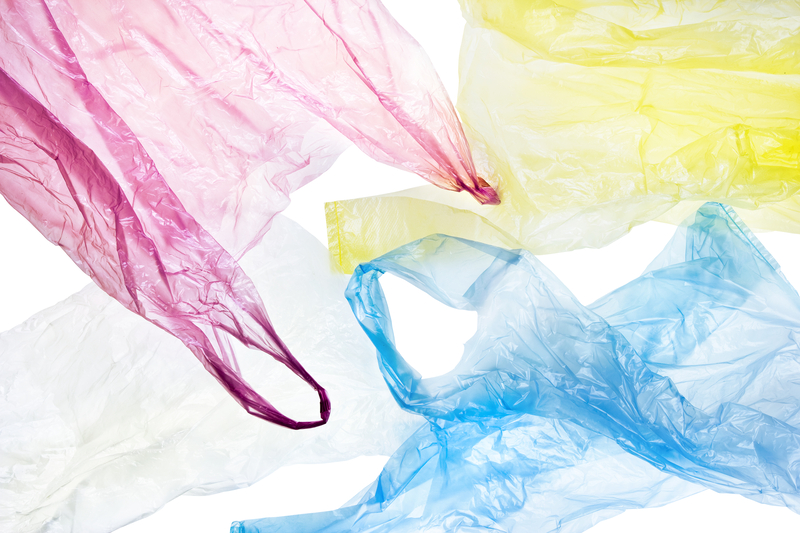The Role of Legislation in Stopping Microplastic Pollution
Microplastic pollution has emerged as a significant environmental concern, affecting water bodies, wildlife, and even human health. In recent years, legislation has taken center stage in combating this pervasive issue. In this comprehensive article, we will explore the critical role of legislative measures in mitigating the spread of microplastics, and how they contribute to a cleaner, healthier planet.
Understanding Microplastic Pollution
Microplastics are tiny pieces of plastic, typically measuring less than 5 millimeters in diameter, that originate from various sources such as the degradation of larger plastic debris, cosmetic products, and synthetic textiles. They infiltrate our ecosystems through numerous pathways, posing harmful effects on aquatic life, terrestrial environments, and human health. Understanding the origins and impacts of microplastics is crucial for developing effective legislative strategies.

The Need for Legislation
Addressing microplastic pollution requires comprehensive and effective legislation. The following points illustrate why legislative actions are essential:
- Regulating Industry Practices: Industries are major contributors to microplastic pollution. Legislation can enforce stricter regulations on manufacturing processes, ensuring companies adopt sustainable practices.
- Promoting Research and Development: Legislation can drive investments into research and technology development aimed at reducing microplastic pollution.
- International Cooperation: Microplastic pollution is a global issue requiring international treaties and standards for a cohesive approach.
- Raising Public Awareness: Laws play a pivotal role in educating the public and promoting behavior change regarding plastic use.
Global Legislative Efforts to Combat Microplastic Pollution
Europe's Ambitious Moves
The European Union (EU) has been a frontrunner in implementing legislation to tackle microplastic pollution. A landmark move was the EU's directive to ban single-use plastics, which significantly contribute to microplastic generation. Additional regulations focus on improving waste management systems, with an emphasis on recycling and reusability.
The United States Approach
In the United States, several states have enacted laws targeting microbeads, commonly found in personal care products. Such measures aim to curb these microplastic contaminants from entering water systems. Further federal initiatives are being discussed to address broader microplastic sources.
Asia's Growing Awareness
Countries like China and India are starting to recognize the urgency of microplastic legislation. With rapid industrialization, these nations face significant plastic pollution issues. Legislation focusing on manufacturing restrictions and environmental standards are emerging as solutions to reduce microplastic output.
Innovative Legislative Strategies
Extended Producer Responsibility (EPR)
EPR is an innovative legislative approach that shifts the responsibility of waste management from municipalities to producers. This strategy incentivizes companies to design products that generate less waste and promote recycling, effectively reducing microplastic pollution.
Incentivizing Biodegradable Alternatives
Governments worldwide are passing laws that encourage the development and use of biodegradable materials as alternatives to conventional plastics. By offering tax incentives or subsidies, legislation supports industries in transitioning to environmentally friendly production methods.
Improved Waste Management Policies
Robust waste management legislation plays a significant role in reducing microplastic pollution. Policies that enhance recycling capabilities, enforce proper waste separation, and limit landfill usage are crucial in controlling plastic waste leakage into the environment.

The Future of Legislation in Addressing Microplastics
As awareness of microplastic pollution rises, the future of legislation looks promising. Governments and environmental organizations are increasingly recognizing the importance of cooperation, education, and innovation in formulating effective laws. The expansion of international treaties and the implementation of stringent national regulations will be instrumental in curtailing microplastic pollution worldwide.
Conclusion
Legislation plays an indispensable role in the fight against microplastic pollution. Comprehensive laws targeting every stage of plastic production and consumption are essential to protect the environment and public health. As more countries adopt and enforce such regulations, we move ever closer to a cleaner, safer, and more sustainable future.
By holding industries accountable, promoting sustainable alternatives, and fostering international collaboration, legislation can significantly mitigate the impacts of microplastic pollution. Continued advocacy and research will further strengthen these efforts, ensuring that our efforts are effective and far-reaching.